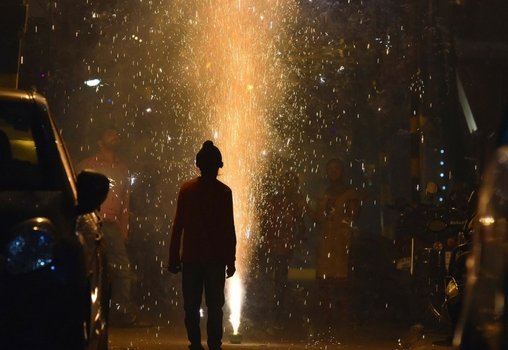This article focuses on the recent Supreme Court (SC) ruling on the Diwali crackers and sale of fireworks. It analyzes the underlying reasons that did not allow the ban to function in its entirety and suggests alternate mechanisms for the road ahead.
In the Oxford Handbook of Public Policy, a part of the introduction reads that policy-makers cannot write “edicts” and expect people to follow them. My professor in college could not have re-iterated this point enough in all the lectures that he undertook for the course in the first semester.
It is naive to believe that the gavel can over-rule the general will of the people in a nation, unless and until the people themselves are seen to be guided by an idea or discourse that supports the progressive views of the gavel. This is also precisely what Mahatma Gandhi had professed. The wrong-doer must see the wrong in their doing.
The two most celebrated bans in New Delhi, the Odd-Even Scheme and the SC order on the Diwali fire-cracker show the problem that is being formerly stated. The idea is simple, if there is no legitimate discourse, then a mere institutional edict in the form of a ban would simply not work, as the populace would reject the imposed idea of the institution and accept the prevailing and preexisting discourse.
Let us dissect the SC order on the sale of fire-crackers. Ignoring the technicality of the order, let us focus on the underlying principle of this order. The idea was to trade-off some elements of the celebration of Diwali for a cleaner environment. The trade was between culture and ecology. The institution here ruled in favour of ecology over culture, and that was undoubtedly the right thing to do. However, most people did not follow the ruling, and the question is why?
To answer the question, we may assume that for the average Delhiwala, the culture perhaps holds more essence than the abstract idea of preserving the ecology. Though the effects of pollution in Delhi is vivid, it is the cumulative effect that is observed, not the individual effect. Since no single entity can own up to the pollution that they cause. The problem of pollution is seen as a ‘public problem’, needing ‘public action’, and not a private issue needing private initiative. This leads to the failure of collective action on the part of the citizens to address the problem.
In order to execute a successful ban, the citizens must indulge in collective action. If one or two individual groups of citizens violate the ban, then their socio-cultural benefit, that of having ‘fun’ during the Diwali celebration, would surpass that of those people who would be following the diktat of the institution.
This is bizarre when you think of it because the so-called ‘free-riders’ will tend to have more ‘fun’, and at the same time, initial reports will suggest that the overall pollution level of Delhi went down.
This happened because the law-abiding others compensated the polluting habits of some. This is where I assert that the policy of ban will not work next year (or in the long-run).
Next year, more people will work under the assumption that they too can get away with a little extra ‘fun’ at the expense of the law-abiding others, and this trend would lead to the total number of free-riders being more than the total number of law-abiding citizens.
Ultimately, in the absence of a legitimising discourse or able coercion, the collective action would fail, and thus, the ban would eventually be fruitless in achieving its objective of reducing the pollution level of Delhi.
These orders and diktats must take into account the structural constraints that an administration faces while implementing them. If the majority of Delhi’s populace decide to burst crackers, then the police and other institutional mechanisms will be reduced to a group of hapless spectators.
Even with a non-corrupt law and order mechanism, monitoring an absolute ban or any blanket policy would be extremely difficult to implement, if not impossible.
Though I am willing to accept that as an ad hoc measure, the ban may be deemed appropriate, but if the idea is to have a long-term Green Diwali Policy for the national capital, the policy-makers must see beyond a ban. There is a need to make the people aware of the problems that are associated with the long-term and short-term measures of bursting crackers.
There is also a need for a discourse that effectively de-glamorises the bursting of crackers during Diwali. This is like how the government has been able to successfully reduce smoking in public places and reduce the overall consumption of cigarettes which, after the active campaigns of personal and public harm, leading to a dip of about 10% in two years.
Changing a long imbibed social idea takes time, and it must be challenged with an idea only. Institutional edicts that proclaim to know better than the prevailing ‘commonsense’ would not stand the test of time, and it would only get flouted in the long-run.
Perhaps it is time to open a debate on possible voluntary regulations and a Green Diwali discourse for the Indian context.
